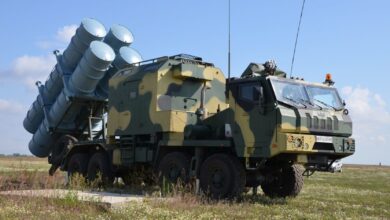
In the last several weeks, a troubling relationship has been growing in Southwest Asia that has serious geostrategic implications for both the United States and Israel.
Birthed from decades of geopolitical pragmatism and a shared antipathy towards the West, China and Iran are working to form a 25-year strategic pact, while at the same time Tehran has signaled its intent to extend a 20-year deal with Moscow.
The geostrategic impact of these relations on the US and Israel could have far-reaching implications. As evidence of this, per US intelligence, all three countries are attempting to interfere in its presidential election in one way or another.
Reaffirming Old Relationships
Iran’s relationships with Russia and China are not new. In the 1980s, China supplied Iran with military weapons and equipment during the Iran-Iraq war and remains a long-term investor both in Iranian infrastructure and its energy sector. In addition, Iran serves as a key outpost in southwest Asia of China’s One Belt One Road Initiative.
Similarly, as Russia deals with American sanctions, it has little to lose from engaging with Tehran in the oil and gas sector, aviation, and the military – even indicating its willingness to sell advanced weaponry to Iran when the UN arms embargo expires on October 18, 2020.

First and foremost, the rekindling of this marriage of convenience between Iran, Russia, and China provides Tehran with a safety net against economic sanctions imposed by the United States. Both Russia and China’s recent maneuvers in Ukraine and Hong Kong have demonstrated their commitment to reducing the influence of the West and propping up Iran in the face of an American-led pressure campaign.
In Ascendant China’s Best Interests
From an American and Israeli perspective, this burgeoning three-way friendship may spell a weakening of sanctions against Iran. China’s efforts to curry favor with Iran show the importance of Southwest Asia to China and its desire to increase its regional influence through a strategy emphasizing “development peace” over “democratic peace.”
Is Tehran naive to Beijing’s longer-term ambitions? Some in Iran argue for increasing economic dependency on China to gain short-term relief from sanctions. Depending on the terms of their agreement, Tehran’s relief from sanctions in the short-term could lead indirectly to China’s long-term control over Iranian ports and, by default, the Strait of Hormuz. This would solidify China’s footprint in the region for decades. These steps would have significant security implications for Israel and the United States.
https://twitter.com/DmitriTrenin/status/1211204674327592966
Additionally, China is looking to broaden its energy resources through oil agreements with Iran. Since Saudi Arabia is currently the biggest supplier of crude oil to China and one of the United States’ principal allies in the Middle East, China’s newfound coziness with Iran could reduce China’s dependence on Saudi oil while further cementing its influence in the region.
The growing China-Iran-Russia relationship provides Iran with the opportunity to reduce the impact of US sanctions and improves Iran’s ability to continue developing nuclear weapons. While there is no evidence of Chinese involvement, remember that China played a prominent role in advancing Pakistan’s nuclear program nearly four decades ago.
US-Israeli Response
Despite the news of Iran’s growing relationship with Russia and China, the agreements have not yet been finalized. Regardless of whether or not this takes place, the United States should continue to maintain friendly relations with Arab nations in the region and work to protect its long-term interests in the region.
Secondly, with US support, Israel should continue efforts to establish diplomatic relations, not only with the Gulf States and Saudi Arabia but also with Pakistan. In addition, Washington should continue building diplomatic, economic, and military cooperation with India, Bangladesh, Malaysia, and Singapore to strengthen multinational cooperation along the Indian Ocean.
And, finally, because not all Iranians think the Iran-China agreement is in their country’s best interest, the United States should increase its efforts to inform the Iranian people of the content of the China-Iran and Russia-Iran agreements and their potential drawbacks.
The emerging partnership between China, Iran, and Russia poses a serious threat to both US and Israeli interests. Continuing to build a strong strategic coalition across the region by both the United States and Israel will help offset the impact of a China-Iran and a Russia-Iran agreement and enhance security in this dynamic and important region.
 Douglas Fraser USAF (ret.) is a former commander, US Southern Command, and a participant on JINSA’s 2016 Generals and Admirals Program.
Douglas Fraser USAF (ret.) is a former commander, US Southern Command, and a participant on JINSA’s 2016 Generals and Admirals Program.
Disclaimer: The views and opinions expressed here are those of the author and do not necessarily reflect the editorial position of The Defense Post.
The Defense Post aims to publish a wide range of high-quality opinion and analysis from a diverse array of people – do you want to send us yours? Click here to submit an op-ed.











